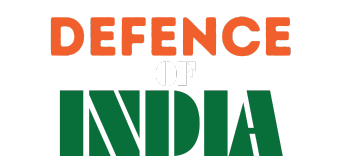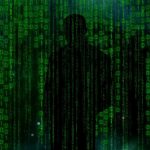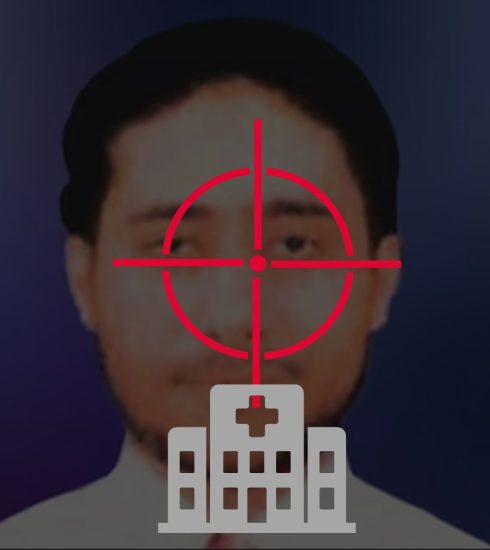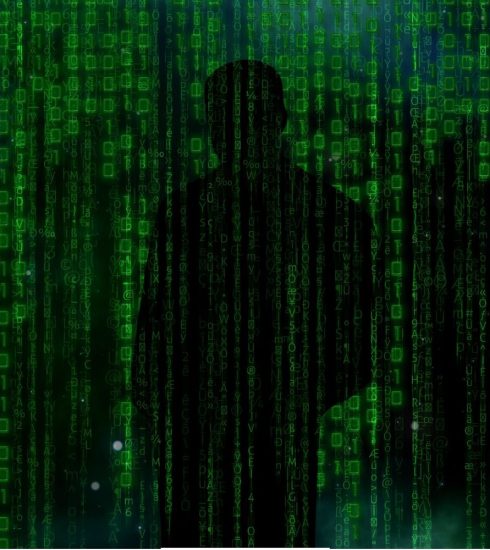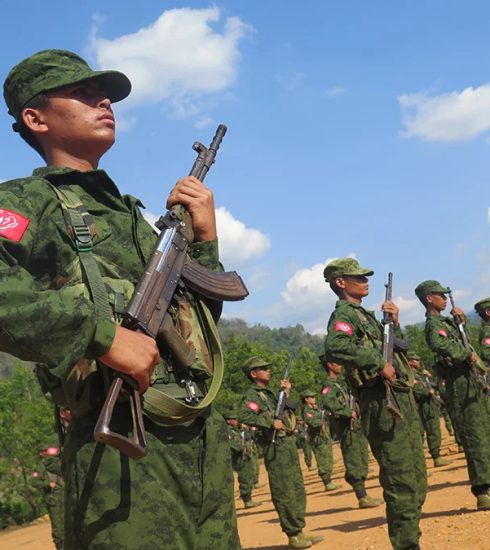ACP Pramod Kushwaha And ‘Chachaji’
In 1986, a Special Cell was established within the Delhi Police. The Special Cell is a significant organization of the Delhi Police, which works with the Intelligence Bureau and the Research and Analysis Wing, acting as a nodal authority. That is, if any input from the Intelligence Bureau needs to be shared with the Delhi Police, it is given to the Special Cell, and the Special Cell shares it with the other branches of the Delhi Police. Similarly, if any input comes from RAW to the Delhi Police, it is also shared with the Special Cell, and the Special Cell further shares it with the other branches of the Delhi Police.
The Special Cell also handles another task, which is filtering all the intelligence gathering and information collected from the various organizational units of the Delhi Police and sharing that information with both the Intelligence Bureau and the Research and Analysis Wing. In other words, the Special Cell is an important organization and institution of the Delhi Police. It was formed in 1986, at a time when terrorist activities sponsored by Pakistan within India were at a very aggressive level. However, there is an incident from 2002 that many people are unaware of today. This incident will show you how two brave Indian Police Service (IPS) officers made a significant contribution to the country.
It was in 2002, and at that time, there was an ACP in the Special Cell named Pramod Kushwaha. Pramod Kushwaha was a highly talented officer. Before joining the police, he was a computer scientist, working with an important government institution. His knowledge of computers was excellent, and he brought that knowledge with him to the Special Cell of the Delhi Police. In 2002, he had to go to Kashmir. The reason for his visit to Srinagar, Kashmir, was that the Delhi Police had a dossier on a terrorist, and that terrorist had links to Kashmir. Hence, Pramod Kushwaha had to go to Srinagar, Kashmir, at that time.
When he reached Srinagar, he met with a BSF commandant. The BSF commandant told him something very important. He said that they had recently killed a terrorist coming from Pakistan, and they found a diary in his pocket. The commandant showed that diary to Pramod Kushwaha. As Pramod Kushwaha was looking through the diary, his eyes fell upon an email ID on the last page. He memorized the email ID and returned the diary to the commandant, and then he returned to Delhi.
As soon as Pramod Kushwaha came back to Delhi, his boss in the Special Cell at the time was Neeraj Kumar. Neeraj Kumar was also a senior IPS officer. He had returned to the Delhi Police after serving on central deputation with the CBI for several years, and at that time, he was heading the Special Cell. That meant Neeraj Kumar, an IPS officer, was Pramod Kushwaha’s boss. Pramod Kushwaha then informed him about the email ID he had seen. Neeraj Kumar immediately instructed Pramod Kushwaha to enter that email ID into the databases of the Special Cell’s computers and try to trace its IP address.
As soon as they tried to trace the IP address, they saw an important pattern. It was discovered that the email ID they had found on the last page of the diary was still active in communication. They also found that this email ID was communicating from several IP addresses, and there was ongoing communication with this email ID from those IP addresses. Armed with this information, Pramod Kushwaha went back to his boss, Neeraj Kumar. Neeraj Kumar told Pramod Kushwaha to make a map to see where exactly these IP addresses were originating from.
A few days later, a map was created, and it was found that all the IP addresses were located in and around the Central Delhi area. As soon as this was determined, the Special Cell realized that they needed to gather more information on this. The Special Cell decided to send its officers to all the cyber cafes in Central Delhi at the time. Back in 2002, it was common for people to visit cyber cafes to use email and the internet, as most people did not have computers at home. So, the Special Cell made the decision to send officers to as many cyber cafes in Central Delhi as possible.
At that time, they would take floppy disks with them. You may remember that during that era, floppy disks and CDs/DVDs were commonly used. The Special Cell officers took these floppy disks to different cyber cafes, where they secretly planted software into the computers of these cafes. This software had a special feature.
The most important feature of the software was that the Special Cell officers had programmed it to detect certain code words. These words included “Chacha Ji” (Uncle), “love”, “football match”, and others. Now, you may wonder why such words were chosen. The reason was that, as I mentioned earlier, since 1986, the Special Cell had been dealing with terrorism cases and had learned that terrorists often use coded language when communicating. These particular words were some of the codes that had been used by terrorists supported by Pakistan in the past.
These codes were embedded into the software and planted into the cyber cafes’ computers via floppy disks. The goal was that if anyone sent or received an email from these cyber cafes containing any of these coded words, the Special Cell would immediately be alerted. After a few days, the Special Cell’s plan began to unfold successfully. Several emails were intercepted, and these coded words were seen repeatedly in those emails.
The most interesting part was that the Special Cell soon realized that these emails were originating from cyber cafes in Central Delhi, and all the emails were coming from Pakistan. Whether from Islamabad or Peshawar, the messages were all sent from there.
The Special Cell continued to monitor these emails, and a clear pattern began to emerge. “Chacha Ji” was a term that was repeatedly used in emails from Pakistan. Along with this, there were repeated references to a “match.” The messages included statements like, “The date of the match is being decided. Identify the players for the match. Chacha Ji is very interested in the match.”
The Special Cell understood from their experience that “match” meant a terrorist act, “players” referred to the individuals who would carry out the attack, and “Chacha Ji” was a code name for Lashkar-e-Taiba’s Zaki-ur-Rehman Lakhvi. Thus, it became clear to the Special Cell that Lashkar-e-Taiba was planning a major terrorist attack in Delhi, led by Lakhvi.
When it was revealed that “Chacha Ji” (Lakhvi) and his agents were planning a terrorist act in Delhi, the Special Cell intensified its investigation. Soon, another email was intercepted, in which it was mentioned that the “match” would take place in the last week of February. By now, the Special Cell had definite input that Lashkar-e-Taiba, under Zaki-ur-Rehman Lakhvi, was planning a major terrorist attack in Delhi in February 2002.
As time passed, the language of the emails became more coded, making it difficult for the Special Cell to extract further information. Now, the Delhi Police needed the help of a cryptographer to decode these messages. After several failed attempts at their own level, the Delhi Police sought help from the Research and Analysis Wing (RAW) of India.
At first, RAW dismissed the input, which is a common example of inter-agency rivalry in India. Eventually, a few RAW officials agreed to help, and they shared the coded messages with their cryptographers. However, even RAW’s cryptographers were unable to break the code.
During this time, Pramod Kushwaha’s friend, who worked for a cryptography company in the United States, offered to help. He said that his company could decode the messages, but it would require a fee. Pramod Kushwaha took this proposal to his boss, Neeraj Kumar, who tried to get budget approval from the Ministry of Home Affairs. However, due to the time constraints, this process was not feasible.
Meanwhile, Pramod Kushwaha’s childhood friend, Vivek Thakur, who was unemployed and had come to Delhi seeking work, met him. Vivek expressed interest in seeing the code, and Pramod showed it to him. After Pramod left his office, Vivek stayed behind, trying to make sense of the code. When Pramod returned in the evening, Vivek told him that he had cracked the code.
Hearing this, Pramod Kushwaha was stunned. He immediately took Vivek with him to meet Neeraj Kumar and explained how the code had been deciphered. It turned out that “Chacha Ji,” or Lakhvi, was planning a major terrorist attack near India Gate at the end of February.
The Delhi Police shared this information with the Home Minister, L.K. Advani, and other senior officials. That very night, it was decided to deploy the army around India Gate and its surrounding areas. The next morning, when people arrived at India Gate for their morning walks, they saw that the army had taken strategic positions all around the area. Due to this quick action, Lakhvi’s agents decided not to carry out the attack, and the communication stopped completely.
In this way, Pramod Kushwaha and Neeraj Kumar’s team successfully thwarted a major terrorist plot. Usually, such operations by the police go unnoticed, but this time, the Special Cell of the Delhi Police displayed remarkable intelligence and bravery, saving the city from a huge disaster. The contribution of Pramod Kushwaha’s friend, Vivek Thakur, in cracking the code was nothing short of miraculous.
This operation demonstrated the importance of coordination between the police and other agencies. Inter-agency rivalry, as seen in this case, can often be a hindrance, but when agencies work together, they can overcome even the most challenging obstacles.
The story of brave officers like Neeraj Kumar and Pramod Kushwaha teaches us that the police play a crucial role in ensuring the country’s safety. These officers, who worked tirelessly to uncover this plot and prevent a major attack in Delhi, deserve our salute and appreciation.
